2021 level 2 (Blue) Marine Educator Training Course
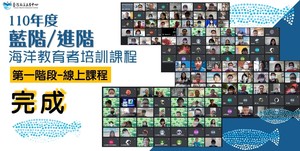
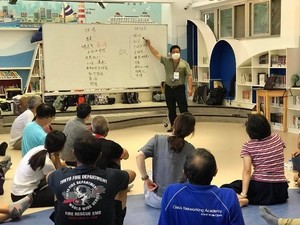
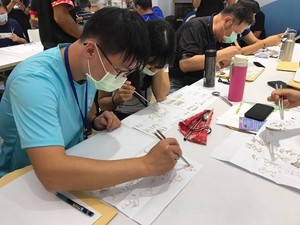
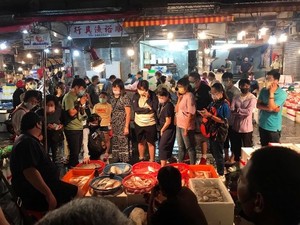
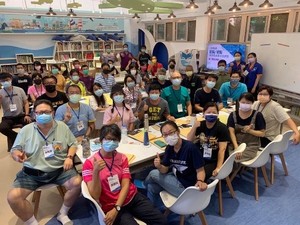
Project Assistant:CHANG,WEI-LUN
Because of the COVID-19 pandemic, starting in May 2021, schools of all levels halted courses in physical classrooms and shifted to online learning. The five-day, four-night Blue Level, or Advanced Level, Marine Educator Cultivation Course, which was originally scheduled for the summer vacation period, was adapted to this shift and was divided into two sets of classes. The first set was conducted online on Tuesday and Thursday mornings in August. The second set was conducted in person on October 2 and 3, when the pandemic was less severe.
The theme of this Blue Level, or Advanced Level, Marine Educator Cultivation Course was the same as that from the previous year, fish-eating education. The purpose of this theme was to cultivate awareness of the depletion of marine resources and, in doing so, change people’s consumption habits and behaviors. The online video course focused on the depletion of marine resources and relevant scientific research. For example, Dr. Shao Kwang-Tsao discussed the amount of worldwide attention protected marine areas receive. Dr. Chang Shui-Kai discussed tuna management and restoration strategies for offshore fisheries. Dr. Hsu Te-Hua and Lee Hung-Tai conducted a brilliant debate on the topic of releasing fry. The students were provided with information regarding sustainable seafood. To foster an aesthetic understanding of the ocean, writer Liao Hung-Chi guided students through the process of creating marine literature, and writer Tsao Ming-Chung tested students’ knowledge of seafood names. The combination of previewable materials, online Question and Answer sessions and interactions, and review sessions and homework as extensions and applications of the materials enhanced learning outcome.
In the second set of courses, the physical courses, the students who had only interacted through online forums met face-to-face. The students were scheduled to explore the Kan-Zai-Ding Fish Market, the so-called Taiwanese version of the Tsukiji Shijo in Japan. Students could observe the market from a human perspective through observation of the fish trade and from a naturalistic perspective through observation of the fish varieties and sources. In doing so, students could contextualize the course content from the first set of online lessons. Through taking in the sights and scents of the fish and the ocean, students internalized the information they had learned. In addition, the group focus of the course contributed to development of cooperation. Through activity planning and establishment of a framework for teaching research and development, a series of marine courses were cocreated across different fields, stages, counties, cities, and perspectives. The final product exhibited high levels of success.
From the first set of online lessons, in which the students had only limited exchanges over the internet, to the physical courses, in which the students became more familiar with one another, the students demonstrated a cultivated sense of teamwork, which was subsequently exhibited in a final group presentation. The courses this year were extended over a longer period than those of the past. At the end of the course, the students’ desire to contribute to the future development of marine education was palpable. We hope that, in the future, we can continue to cultivate students’ desire to pursue a marine education.

